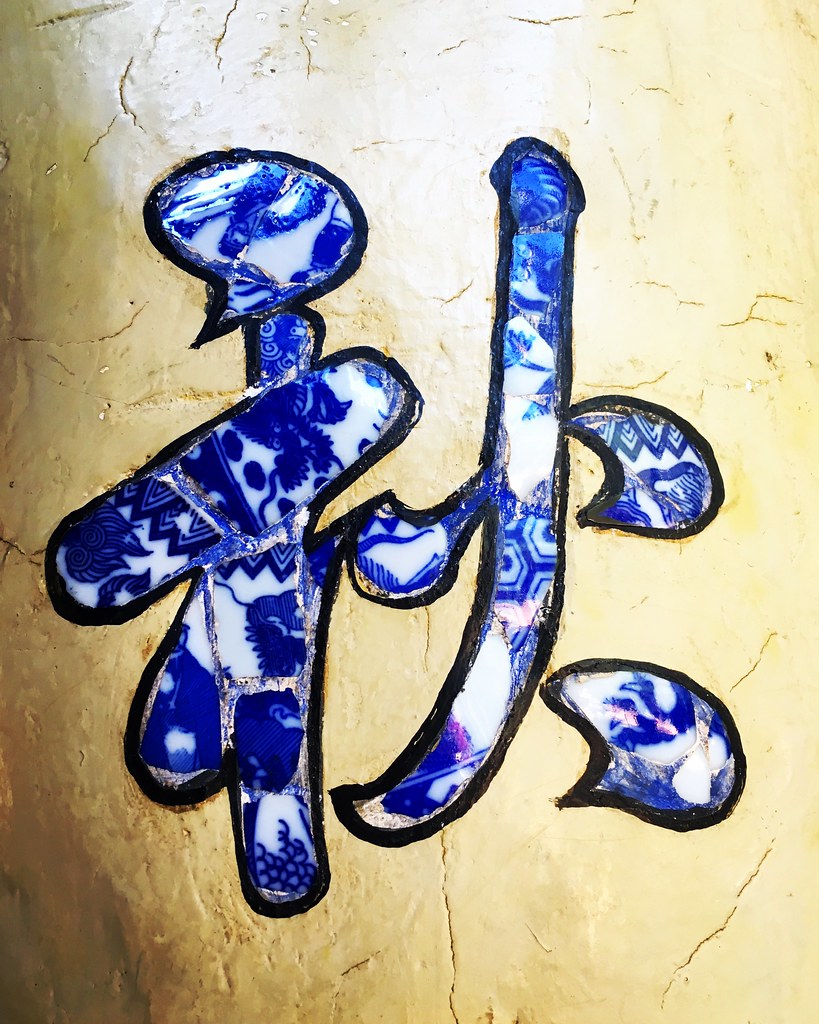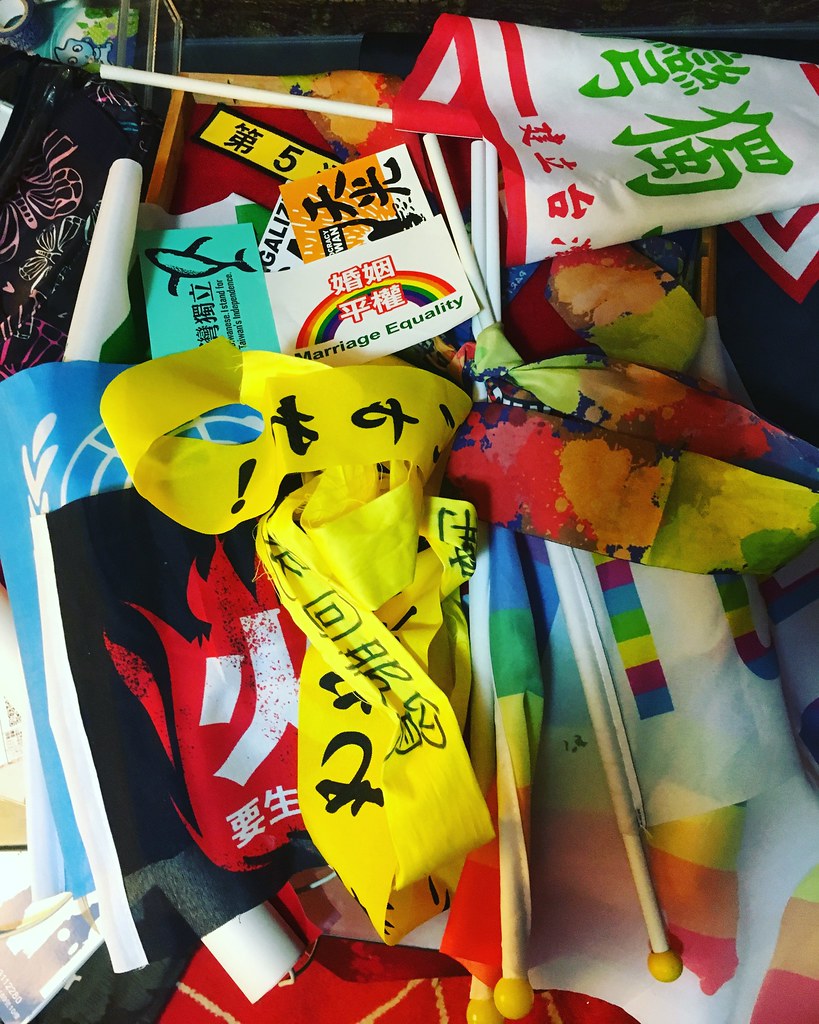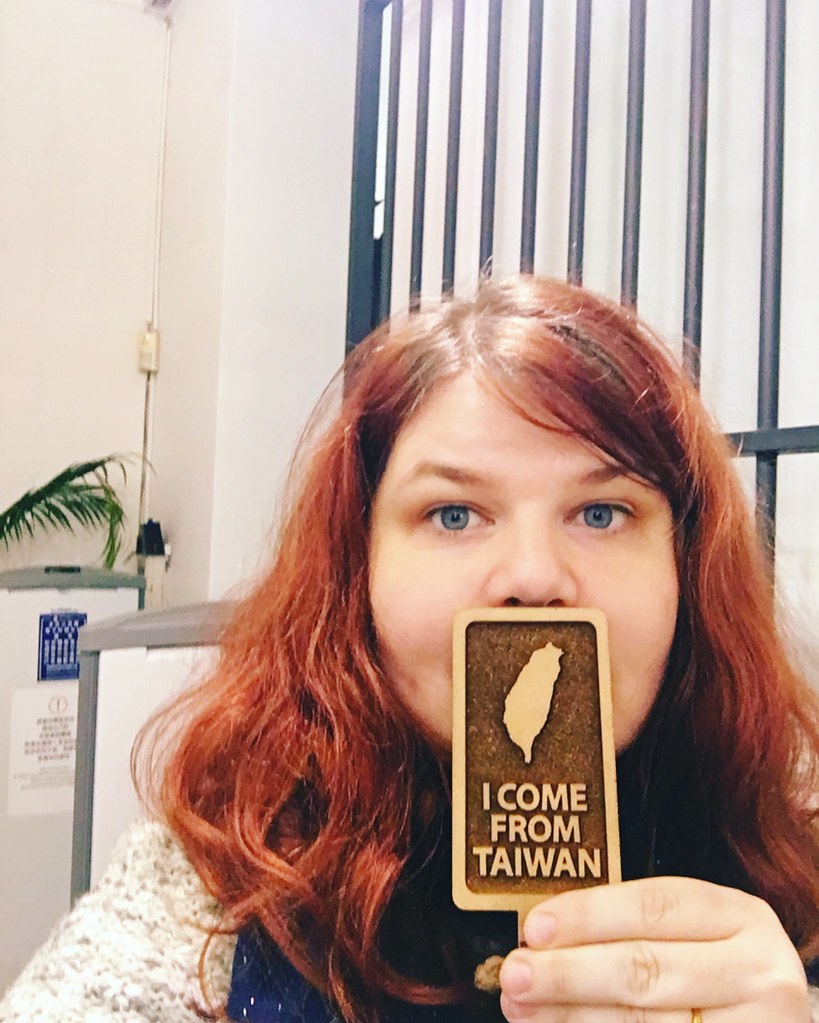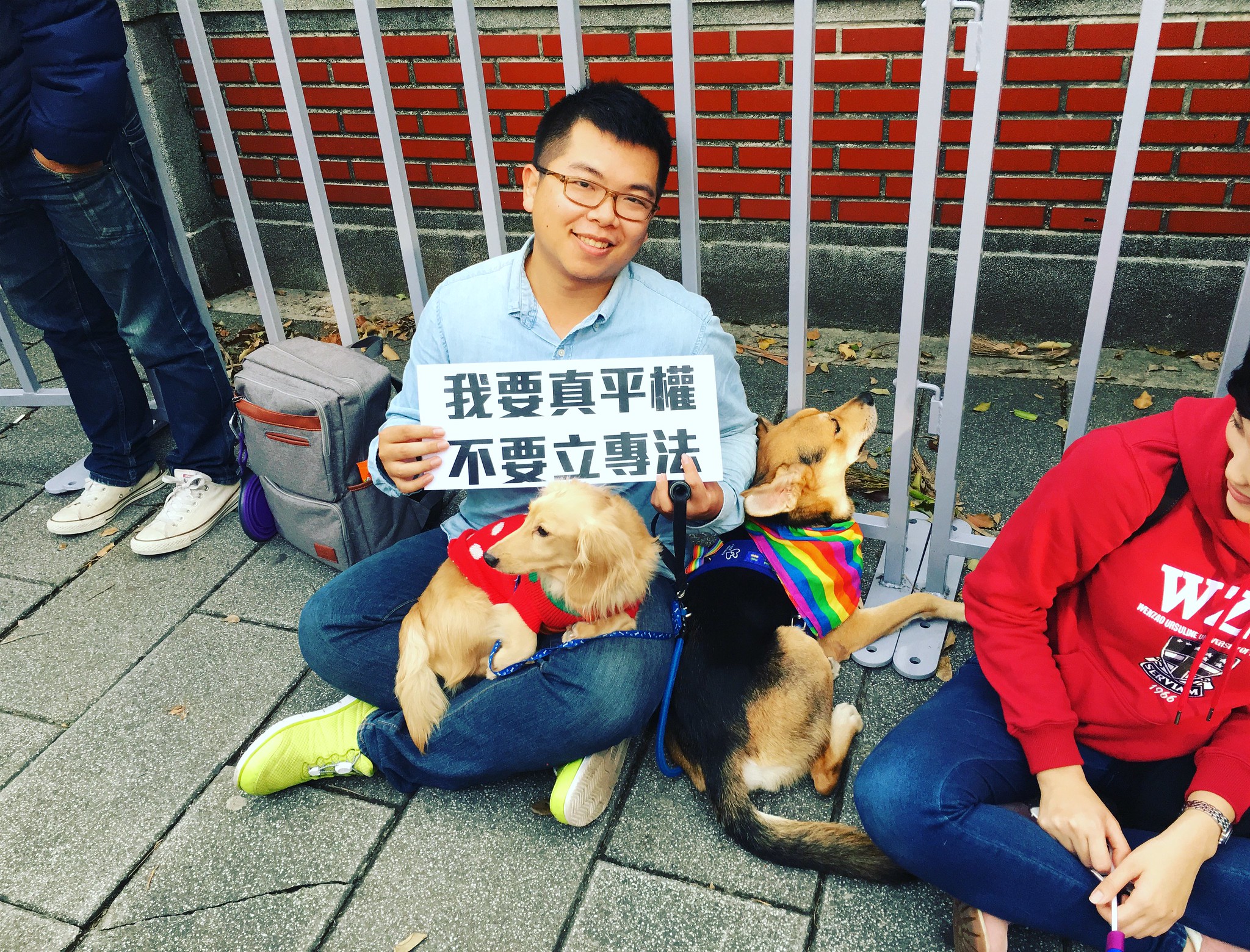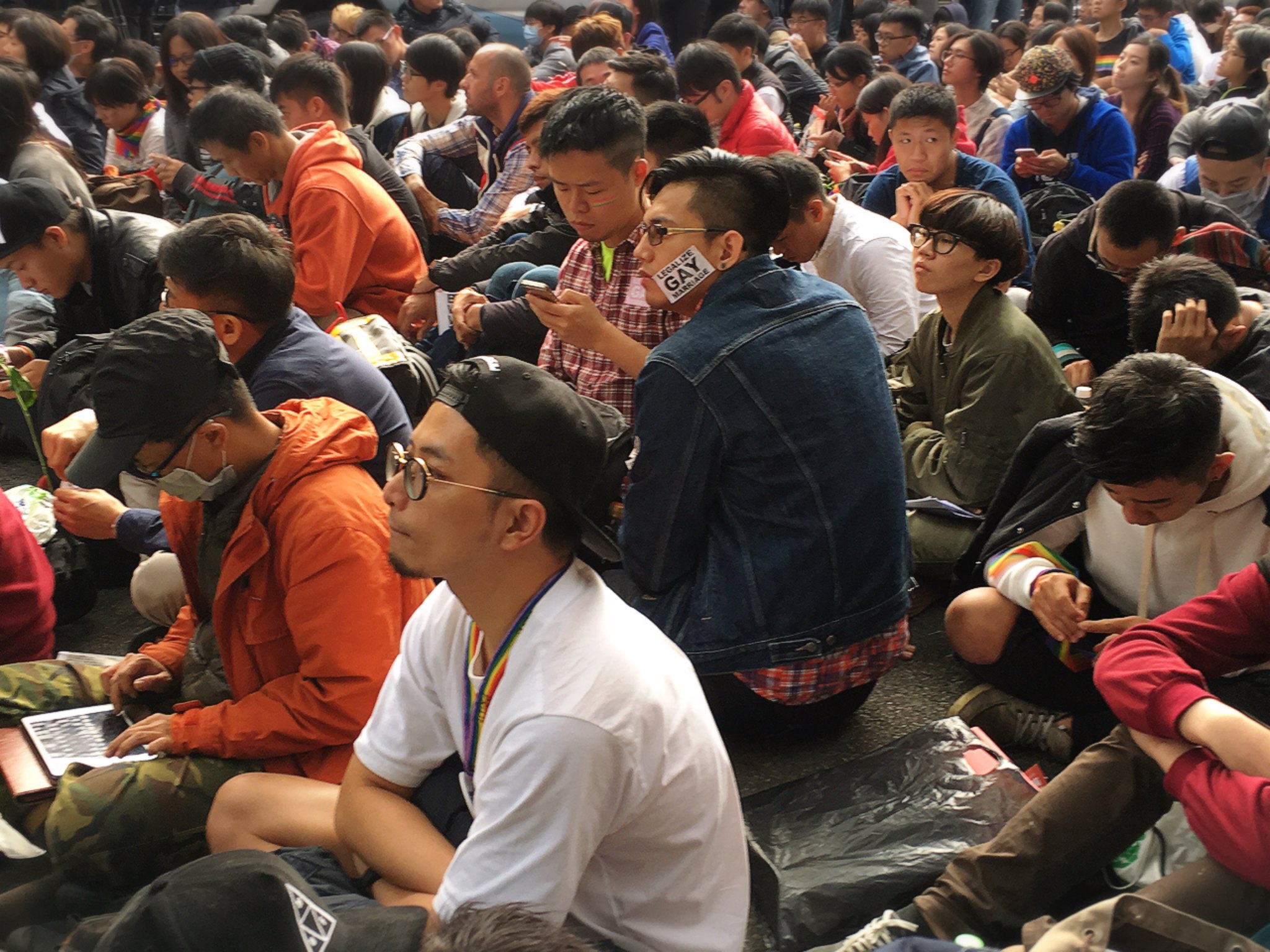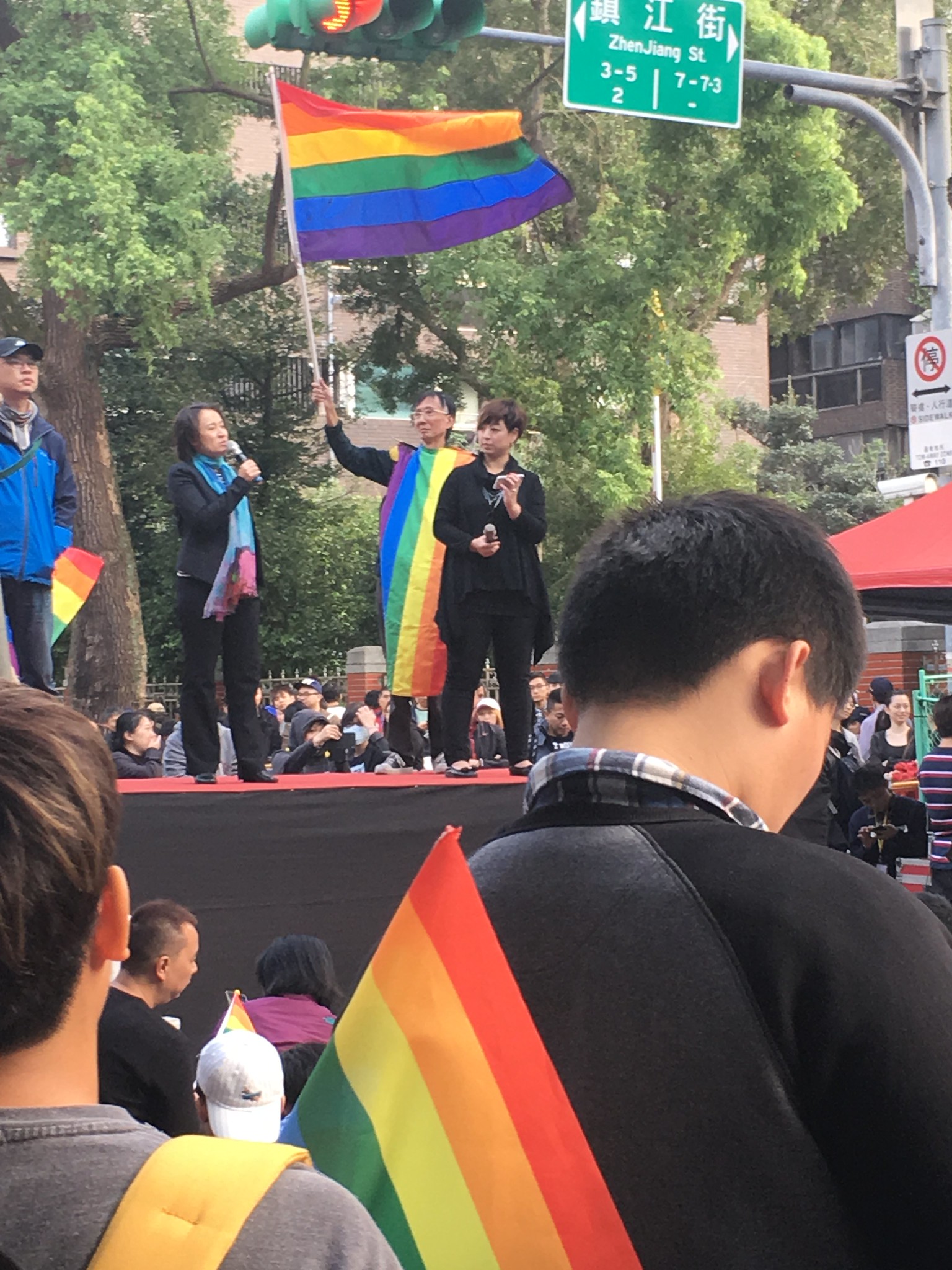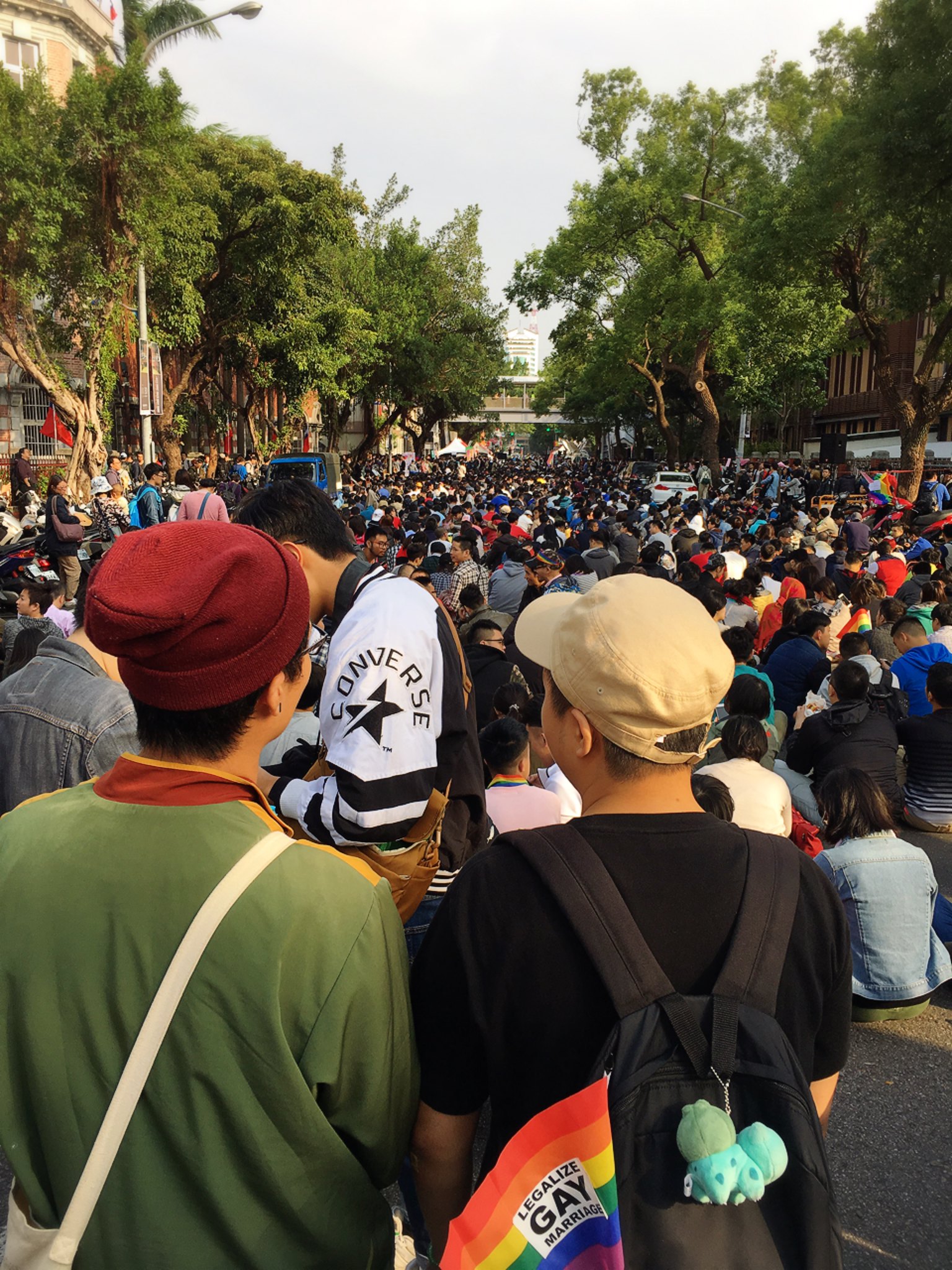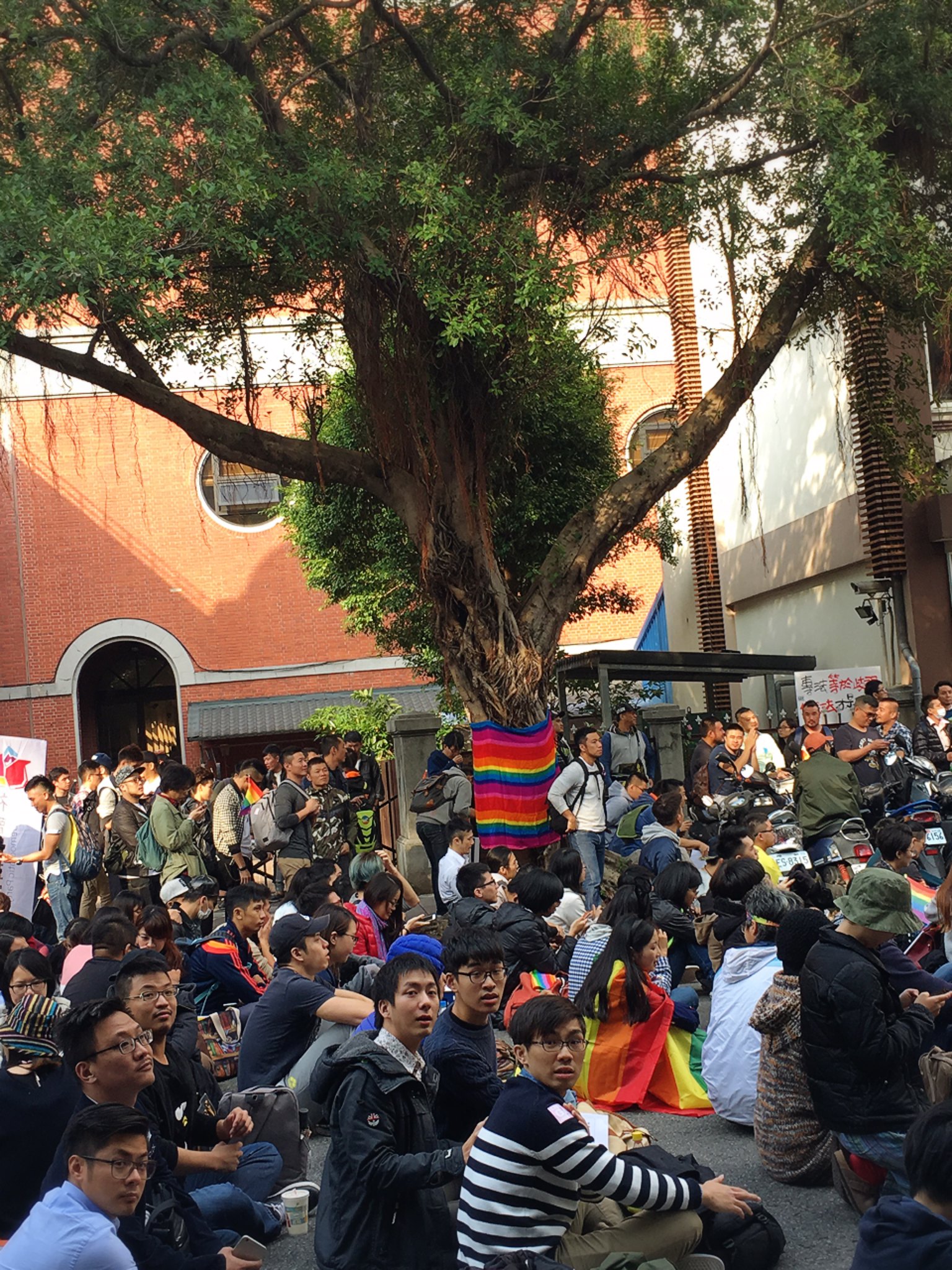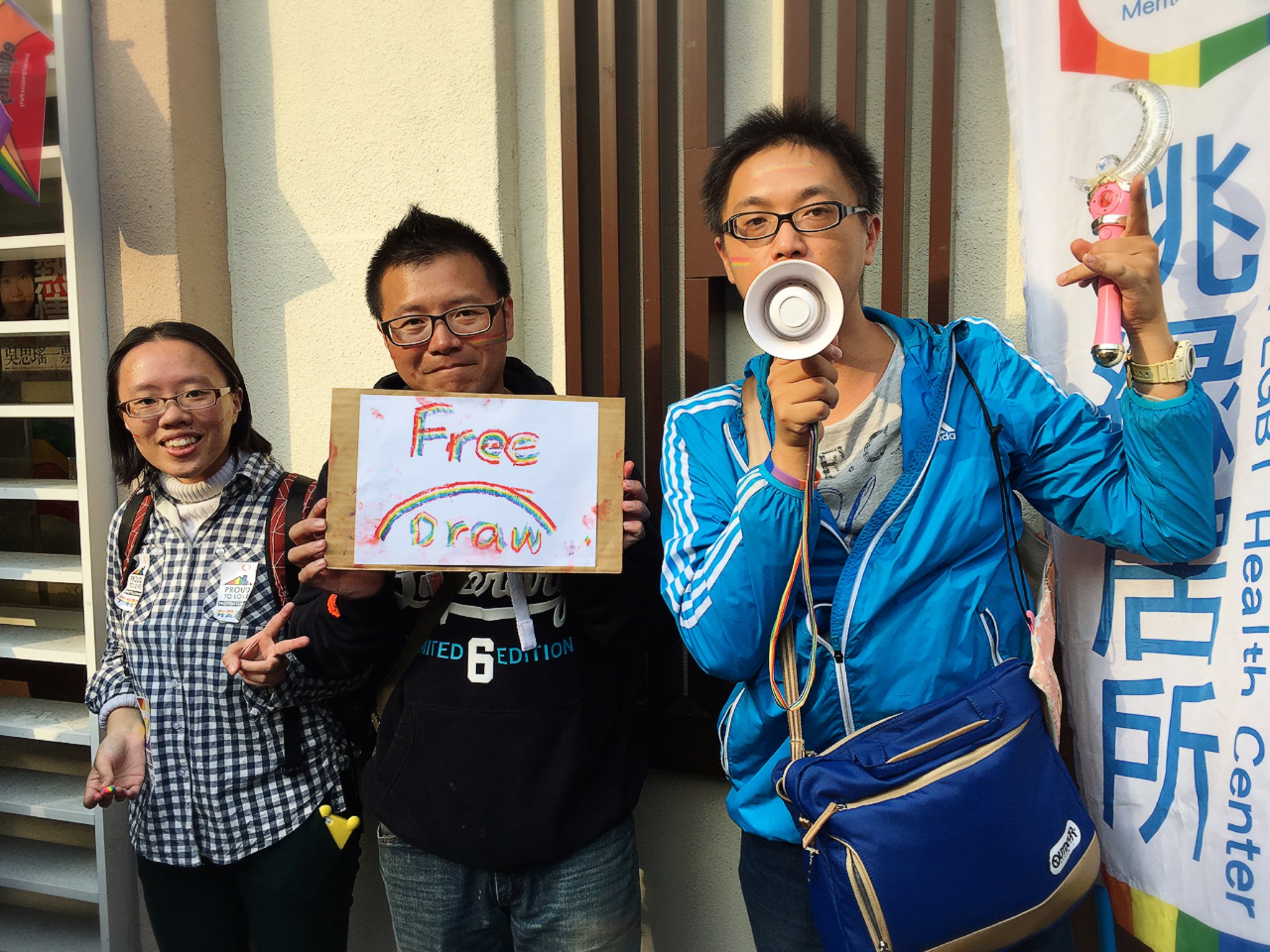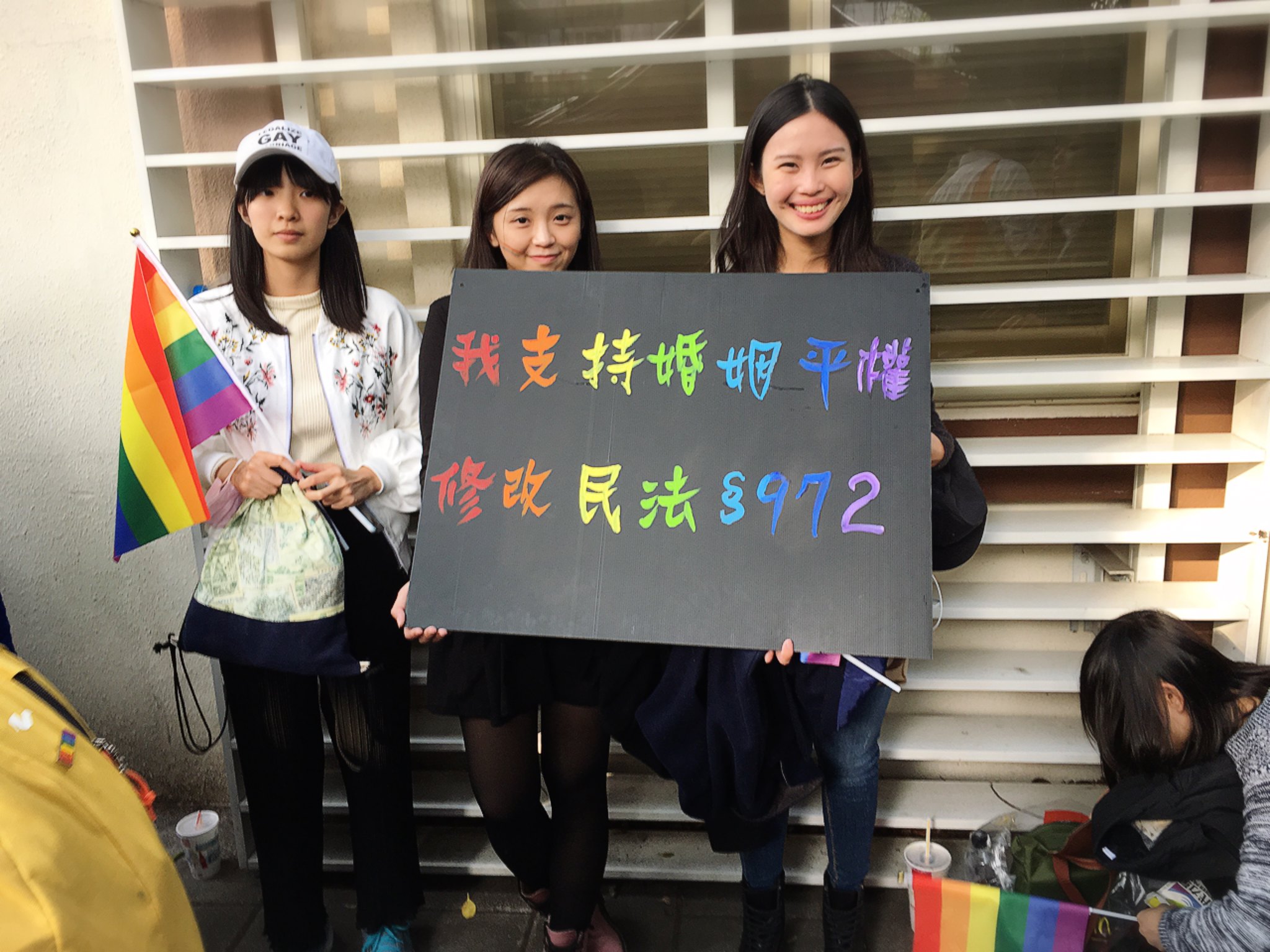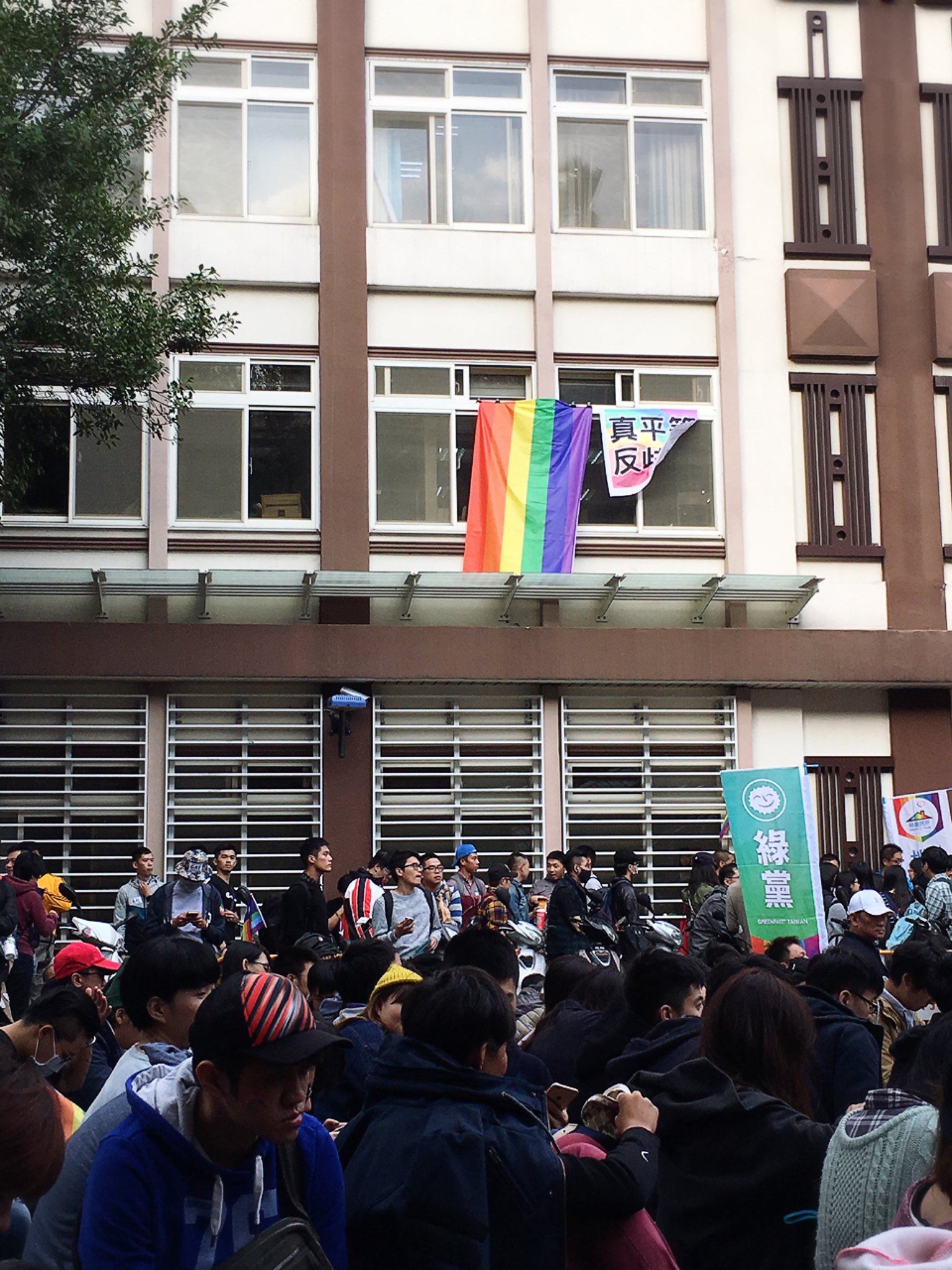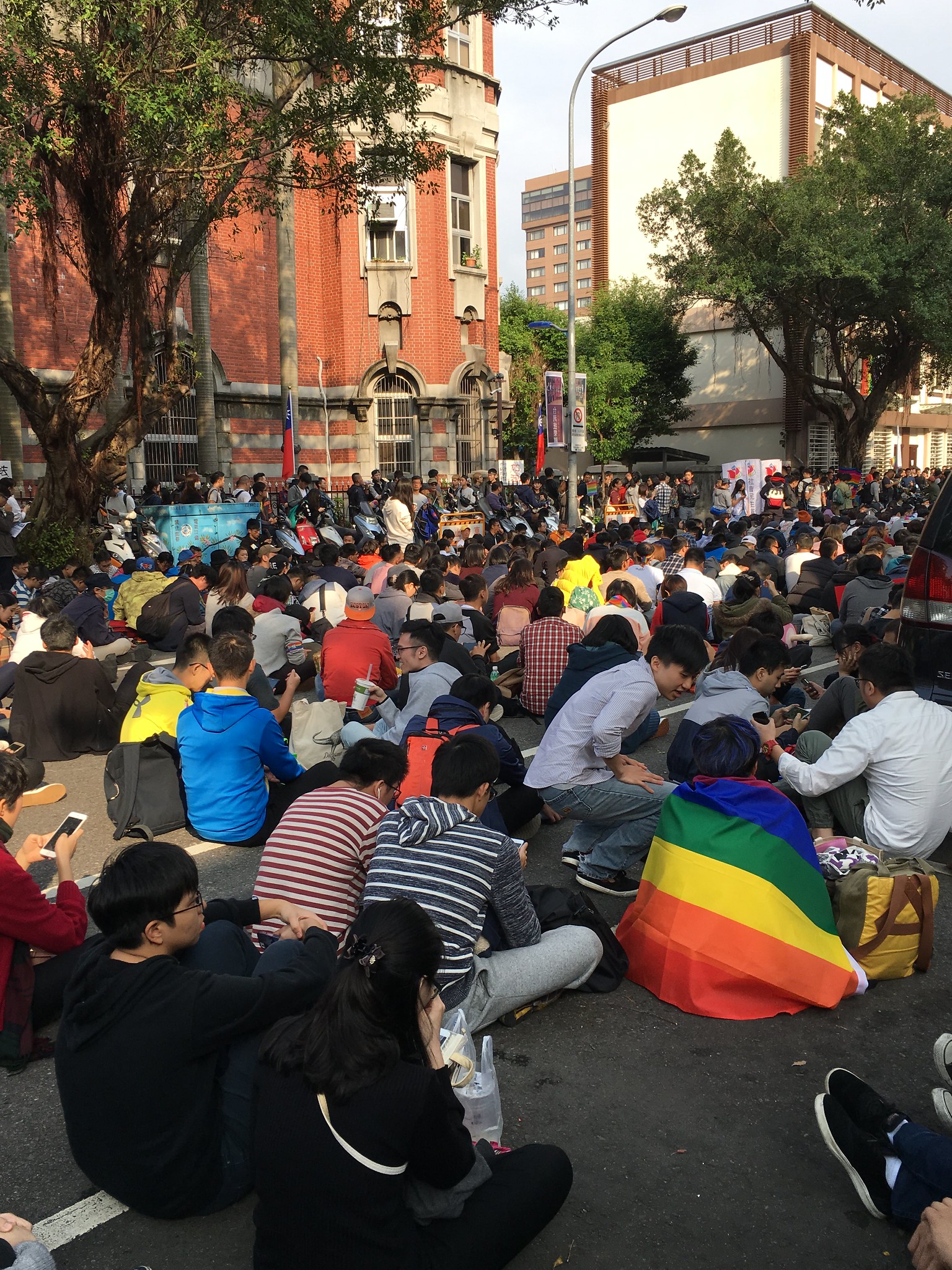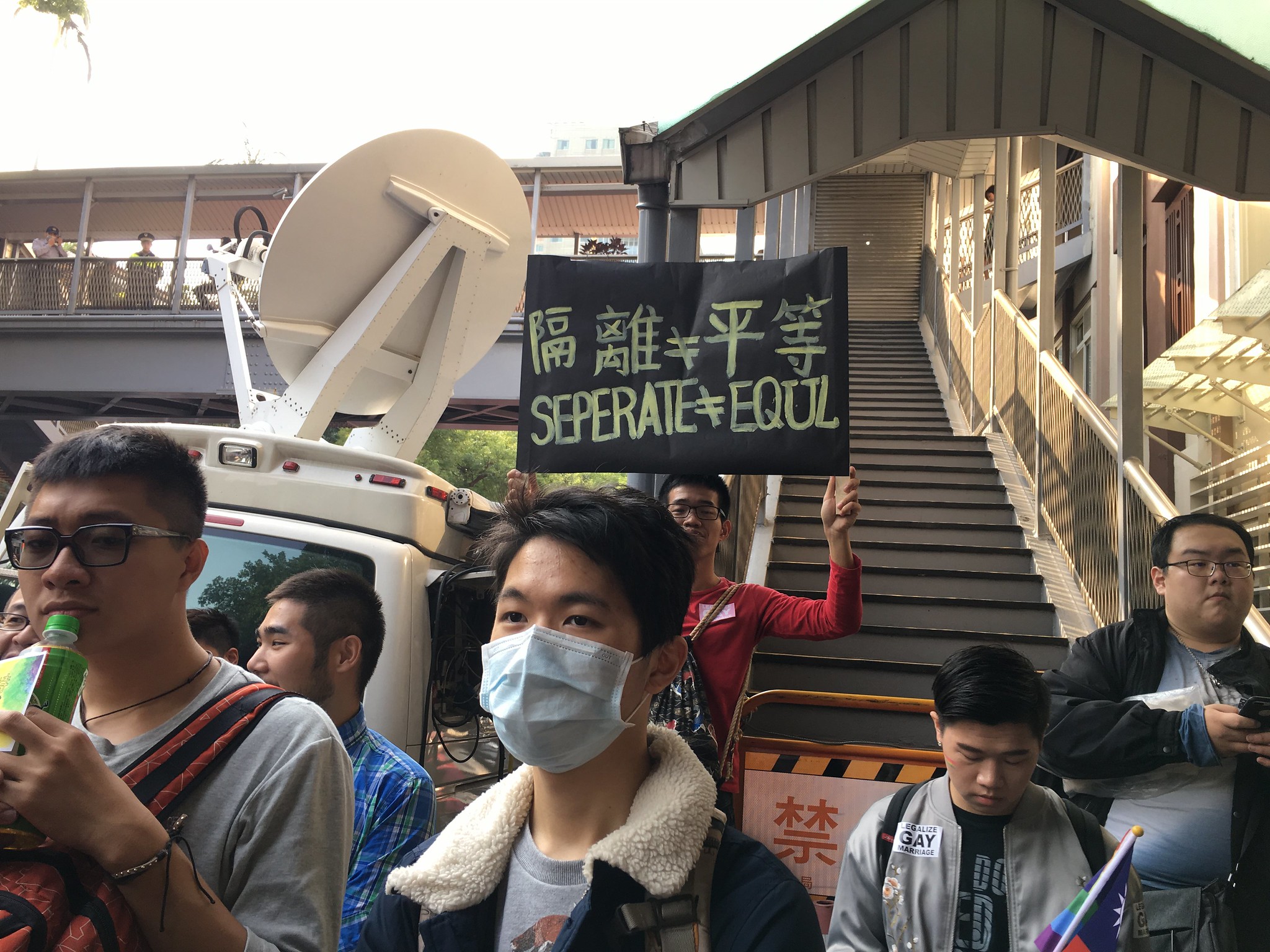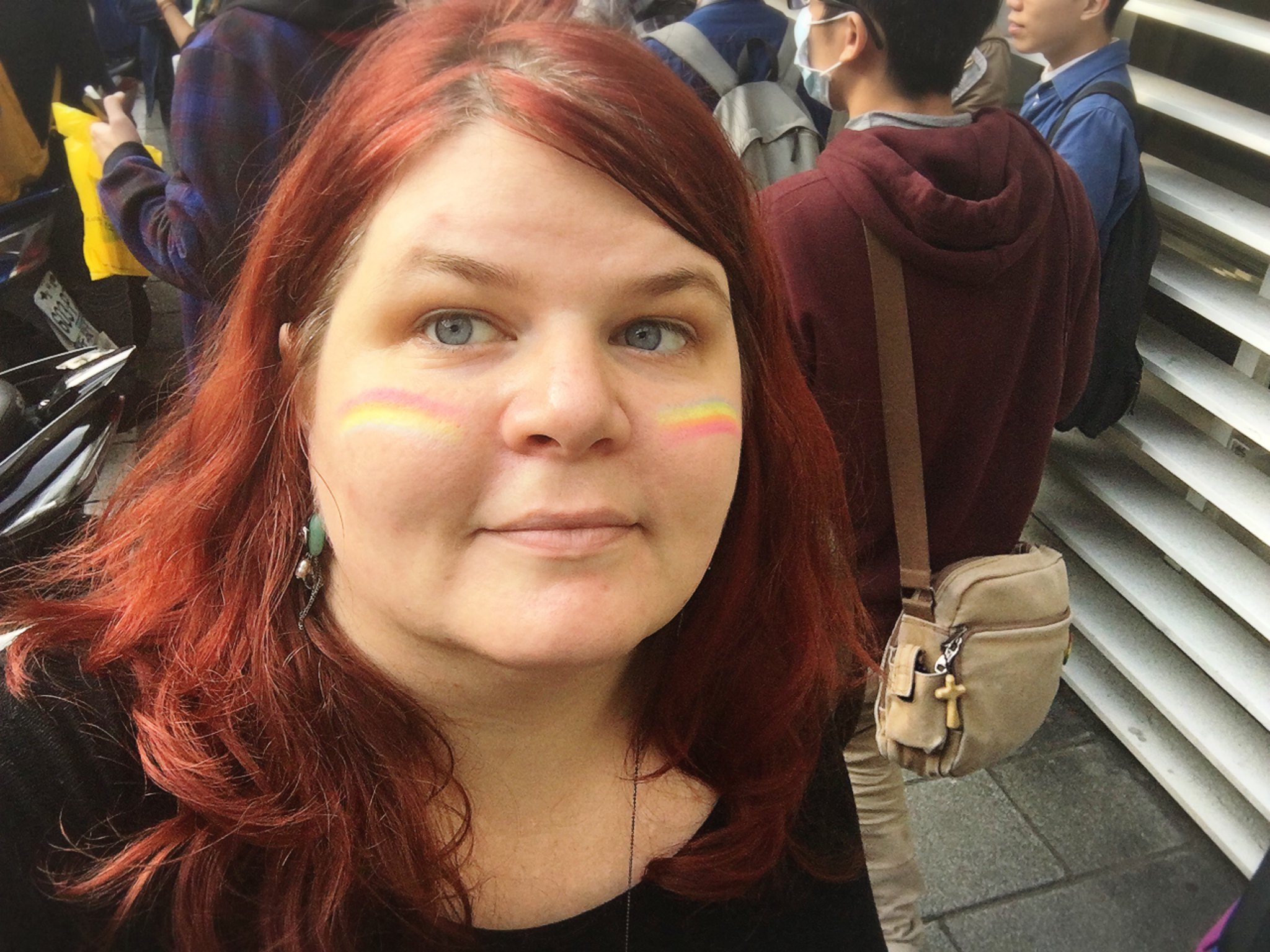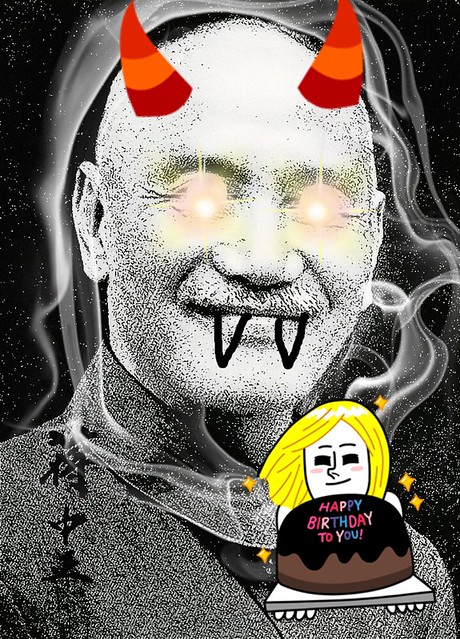As the Legislative Yuan exits recess with marriage equality hot - I hope - on the docket, many have been wondering what the deal is with Tsai's mealy-mouthed, congee-like "support"-ish words for something she so clearly supported more strongly on the campaign trail.
A lot of news and analysis has come out on this issue in recent days, and it's worthwhile to gather it together and see what it says as a whole.
What I see is this: I honestly believe that Tsai personally supports marriage equality. One of the reasons why it became such an issue in 2016 is that she made it such a central issue of her campaign - the first major presidential candidate ever to do so (I don't know if any minor candidates had done so in the past). She didn't have to do that - Ma's low popularity and black-box bullshit had pretty much assured the DPP a win in 2016 - but she did it anyway. I simply do not see that as having been possible without her personally holding that view.
It is also clear that Tsai is deeply pragmatic, which at times can imbue her persona with something akin to a frosted amorality: I do believe that if she thinks a solution that is not exactly moral is the most practical, she will pursue it regardless of what's truly right or her own personal beliefs. Obama displayed this tendency too, in his Middle East policy - frankly, most politicians can be like this. I could see her backing away from marriage equality and either getting wishy-washy on the topic because it suits her interests and goals, or supporting a lesser bill (such as a civil partnership bill) because she thinks it will cost her less politically.
While it is important on some level for the president to be personally in favor of doing what's right, I'm not entirely sure it matters in a big-picture sense, however. If she weighs her options and decides that she can win re-election and take the least political losses by abandoning marriage equality, she will. So, what should matter is not what she thinks, but what she does.
Unfortunately, her actions have been disappointing. Some news items on the matter, however, have been unclear: she reportedly told one activist, Vincent Huang, that "you may never live to see marriage equality" (or something to that effect - it's really not clear) when he pointed out that he and others could not put their lives on hold. However, the transcript of that talk seems to refute this.
Why bring it up at all if that's not what Tsai said? Because I want to point out something she did say according to the official transcript that merits attention:
Huang: "But our lives can't be put on hold."
President Tsai: "I know, but even if you can't put your lives on hold you need to consider the future of other people as well and think of them as well."
YO BACK THAT TRUCK UP.
What is that supposed to mean? That the superstitions, religious dogma and delicate sensitivities of anti-equality protesters are just as important as Huang and others having equal rights? That people who currently lack equality should spare a thought for those who want to keep it from them, even though obtaining equality would not hurt those people in the slightest, but would be a great boon to the LGBT+ community?
How can one say, in 2017, that someone else's fears and anxieties over an expansion of rights that won't affect them at all are just as important and worthy of consideration as the rights themselves and what they would mean to the group that seeks to gain them?
I'm sorry, but it's preposterous to even suggest that the direct effect of this issue on the lives of same-sex couples is no more important than someone else's sanctimonious "feelings" on the matter, and that the LGBT+ community and their supporters should show more sensitivity to them than they have ever shown us. As though their anxiety and fear of being made even slightly uncomfortable equates with your not having access to one of the most fundamental societal institutions. As though pseudo-science should be considered on an equal level with real science.
The reason given for this statement appears to be the same reasoning behind her meeting with proponents and opponents of marriage equality to listen to "both sides" - to listen to different views. There's nothing inherently wrong with that, except that in this particular debate, one side wants to deprive another of equal rights - rights that, should same-sex couples gain them, would not affect opponents in the slightest. We have listened to them enough - throughout history we have had to listen to them. Their views are well-known; there is no reason to give them yet another venue to express them. Another reason not to go through this farce: their science is clearly false. They have no evidence beyond their own fears and superstitions. Their social beliefs are religiously motivated (most opponents of marriage equality in Taiwan identify with a religious group of some sort; those who support equality are far more likely to be religiously unaffiliated). If you believe that members of one religion should not have the right to impose their beliefs on an entire society - and I do - there is no basis for continuing to give their views equal weight.
I do understand that some anti-equality religious groups genuinely feel they're not being listened to, or that they are being attacked, and they have fears that, to them, are real. On that level I can understand the motivation to talk to them openly.
However, I just have to say this: as I pointed out above, we've been listening to them forever. What they want is basically already law. They've pretty much had the floor for most of human civilization and gotten their way. It seems pretty clear to me that when the marriage equality movement started being taken seriously around the world activists in the movement did try to talk rationally to conservatives (who started out being in the strong majority). I don't think the movement would have gotten this far if they hadn't. LGBT+ people and their allies have spent literally decades laying the groundwork by doing this. There is a point when, if anti-equality believers have not been persuaded by rational discussion and good science, on some level they don't want to be. If they feel they are being attacked after decades of getting their way, simply because their views are no longer majority views, then on some level they want to feel attacked. If they feel nobody is listening when more than half the history of the movement, in every country where it's taken hold, has been about listening and discussion, then on some level they want to insist that unless they are being obeyed, they are not being listened to. This is one movement that, due to fear, superstition, irrational yet entrenched norms and straight up bigotry, might never have gone anywhere if it hadn't started with advocates being friendly, approachable and rational.
So, I find that whole "we are being attacked" line of thinking disingenuous. At this point, they have been listened to, and harsher criticisms have only been fairly recent, in response to their sheer intransigence. If they still insist on that fear and anger, on some level, it's because they want to. I am not sure what rational discussion can do that hasn't already been accomplished with those who think this way.
Finally, simply looking at support for marriage equality should be evidence enough. The key takeaway from the survey linked above is that, at approximately 40% in favor and 27% opposed, despite representing a plurality rather than a majority of the population, the consensus of Taiwanese is in support. If you take that 40% or so and group it with undecided respondents, it forms a very strong majority. Attendees to various pro- and anti-equality rallies seem to confirm this: the pro-equality numbers appear to be consistently larger despite the better organizational and networking capability, through church networks, of the anti-equality crowd.
It is folly, then, to give the two sides equal weight as though their views are truly equal. It is also folly to pretend that society is perfectly divided on the issue - it's not.
I also worry that her words - including, in one Facebook post, that "there is no need for total conflict between family values and equal rights" (link in Chinese)- can be interpreted in some very troubling ways. I would love for this to mean that she does not feel that marriage equality is an assault on Taiwanese values (and it's not). However, it could just as easily be taken to mean that, if it would foster more agreement between supporters and opponents, that she'd sell out marriage equality for the lesser accomplishment of not-quite-marriage, separate-but-equal civil partnerships so as not to anger the delicate sensitivities of a few anti-equality agitators.
She knows this - she must. Therefore I have to agree that the meeting was a stalling tactic.
This leads me to believe that Tsai has decided that stalling on marriage equality is safer politically than adhering to her own campaign rhetoric (as a friend pointed out, I do not believe she ever actively endorsed or promised legislation - her language on the matter began and ended with her personal views. Still, the change in overall tone does feel hypocritical, as though she's unaware that we're aware that we may have been duped).
I'm not sure why this is: she won in great part due to the support of the youth, a group she may not win again, or may not win so handily, if she does not deliver on an issue that is important to them. One wonders if she realizes exactly how many votes she stands to lose simply for coming across as a two-timer on this issue, or if she fully understands that the support of the electorate is worth more than the support of a few powerful church organizations (if events in recent years have proven anything when it comes to Taiwanese politics, if you listen to powerful special interests over the people, the people will hold you to account).
The sheer lack of sense in this whole approach leads me to wonder what caused the sudden freeze-up. What caused clear words of support to turn into so much gooey rice porridge political nothingness? We know the churches, with the help of American hate groups, in Taiwan are powerful and wealthy, but are they truly this powerful and wealthy, enough that Tsai would risk angering a larger number of voters to appease the smaller numbers in their networks? What exactly is she scared of, and why? Does she really believe that promising dumplings and delivering tasteless congee is going to be enough to get the youth to come back out for her? Does she think that this sort of empty "let's listen to both sides" rhetoric and "I'll do whatever the legislature recommends" backsliding is going to be received without comment or backlash? Has she seen what has happened in the past year to other establishment politicians who tried such tactics thinking they would work in today's political climate? She's not stupid, so what is she thinking exactly?
Does she realize that, while civil partnerships would be a step forward, that they are not going to satisfy this segment of society?
If I haven't been clear enough already, let me highlight this point: if Tsai doesn't get her act together on marriage equality she will lose the youth vote.
Full stop, no hedging. She will lose it, and there are more of them than there are of the religious folks. I deeply, sincerely hope she realizes this. In modern, democratic Taiwan if you don't listen to the people, you get burned.
A lot of people (well, mostly other expats) have been asking the ardent activists to give Tsai a chance. She has a lot on her plate, from the economy to China to transitional justice to labor and pension reform. I get it. But her approach to marriage equality, then, ought to have been "I support this. I'm also working on these other things, but I am open to seeing this progress", rather than the halfhearted stalling and feinting that impresses nobody and is already starting to turn off the youth and progressive voters. I gave her time - I didn't expect that marriage equality would make it through the legislature in 2016, but I see no reason why it shouldn't pass in 2017 and I am not impressed with how Tsai is handling the process. It's not the time, per se - we get that these things take time. It's how she's comporting herself on this issue that is worrisome.
It's taking a lot of time - time enough for a hearty bowl of rice to be boiled down into icky, sticky congee.

